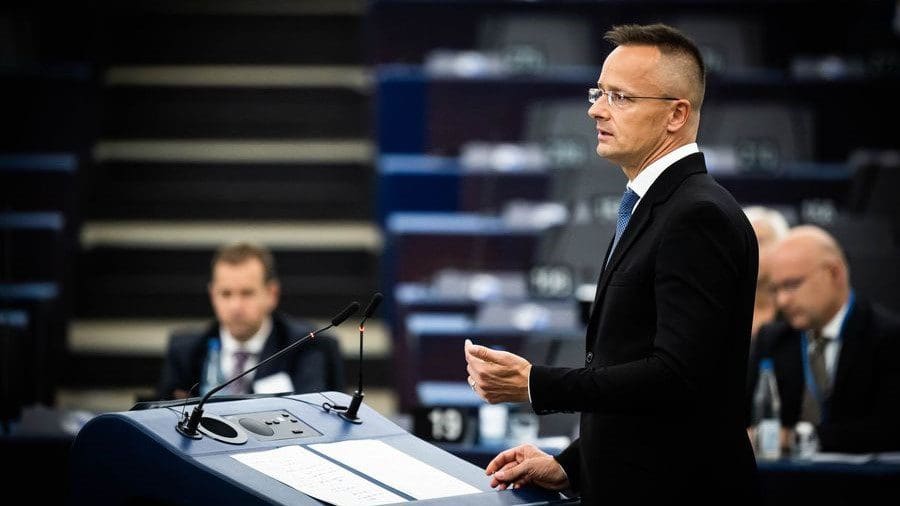‘Every effort must be made to avoid a conflict between NATO and Russia,’ Foreign Minister Péter Szijjártó of Hungary told public radio on Sunday, 3 March. In reference to French President Emmanuel Macron’s recent remarks in which he said that ‘nothing could be ruled out’ when asked about the possibility of deploying Western troops in Ukraine, Szijjártó told Kossuth Radio that Europe was suffering from ‘war psychosis’. However, he did welcome the responses from the majority of European politicians who said they did not wish to send troops to Ukraine.
After Western Europe’s deliveries to Ukraine progressed from helmets to ammunition, armoured vehicles and rockets, he said it was no surprise that some Western politicians were talking about the deployment of ground troops. ‘That is diametrically opposed to joint decisions taken till now,’ he added.
The minister also noted that NATO member states had issued a declaration two years earlier, stating that NATO was not a belligerent party in the conflict and that all efforts should be made to avoid a direct conflict between NATO and Russia.
Comments by Western politicians on sending troops to Ukraine are in violation of that declaration, he underscored. He added that
NATO is a defence alliance and attacking anyone was not its purpose.
He went on to say that Hungary’s prediction made at the start of the war that sanctions against Russia would not work and that there would be no solution on the battlefield had proved correct. Minister Szijjártó warned that the longer the war lasted, the greater the threat of that ‘terrifying danger called the third world war’.
He also pointed out that the scenario in which Ukraine made advances on the battlefield that would put the country in an advantageous position to start negotiations had not materialized. ‘Time is on Russia’s side,’ he remarked.
The foreign minister reiterated Hungary’s position against sending weapons or troops to Ukraine, and for urging a ceasefire and peace talks. Speaking about a recent summit of Visegrád Group leaders, he acknowledged differences in the respective positions of the V4 countries regarding the issue of peace, but said cooperation was an advantage when representing interests that converge, such as illegal migration, keeping energy supply a sovereign matter, and pursuing agriculture development.
Related articles:
Sources: MTI/Hungarian Conservative








